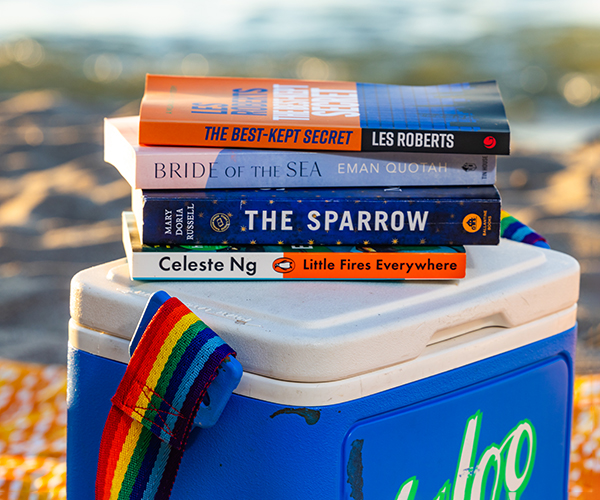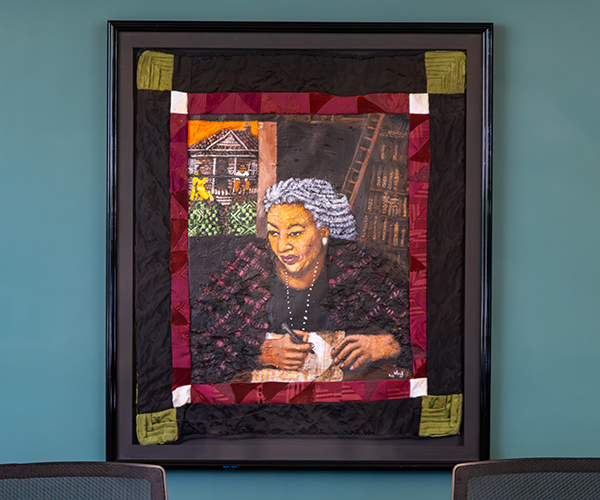Philip Metres hears poetry where others hear background.
The John Carroll University professor and poet rearranges overheard conversations, interviews and even legal documents into what he calls “documentary poetry.”
“In essence, the documentary poem is not unlike documentary film in that it takes pieces of life and shapes it in different ways,” Metres says. “It challenges a poem not to be subjective or naval gazing. The poem is not just a site to share feelings or vision, but to have a dialogue with the world.”
In his latest collection, one piece, “To See the Earth,” finds Metres writing about pulling off the road for Krispy Kreme doughnuts in the town where President Abraham Lincoln was born.
In it, he mixes scenes from the current touristy state of the area (“We rummaged through chocolate Lincoln, key chain Lincoln, Lincoln lunch boxes, his face on every wall watching us”) to historical letters from Lincoln (“In the museum, a facsimile of a letter. How once, in Kentucky, Lincoln witnessed a slave caravan pass through town. On hands and necks a web of chains, iron collars chafing”) to his own memories sparked by things he saw there (“What do
we know of Lincoln’s mother the family left, buried in Kentucky? That she couldn’t read. I once asked my mom what she’d like remembered of her family. ‘That’s nice, sweetheart,’ was all she passed on”).
Metres says he assigns his undergrads at least one documentary poem each semester. “One of the great empowering things about documentary poetry is to say we are all poetic. We all use language in interesting ways.”
Philip Metres says it has taken him years to write authoritatively about Cleveland. This excerpt, from “A Cleveland of the Mind,” shows that he’s well on his way:
The grays, the innumerable and unnamable grays, the old milky gray, the mixing cement gray, the stone gray, the skinned knee gray —the skies of winter and all its gray guises, so permanent, when, suddenly, at five in the afternoon, the sun deigns to descend below the mask, and arcs a light so painfully beautiful, it snarls traffic for miles — the westbound commuters flying suicidal, into the cauldron of evening.
The John Carroll University professor and poet rearranges overheard conversations, interviews and even legal documents into what he calls “documentary poetry.”
“In essence, the documentary poem is not unlike documentary film in that it takes pieces of life and shapes it in different ways,” Metres says. “It challenges a poem not to be subjective or naval gazing. The poem is not just a site to share feelings or vision, but to have a dialogue with the world.”
In his latest collection, one piece, “To See the Earth,” finds Metres writing about pulling off the road for Krispy Kreme doughnuts in the town where President Abraham Lincoln was born.
In it, he mixes scenes from the current touristy state of the area (“We rummaged through chocolate Lincoln, key chain Lincoln, Lincoln lunch boxes, his face on every wall watching us”) to historical letters from Lincoln (“In the museum, a facsimile of a letter. How once, in Kentucky, Lincoln witnessed a slave caravan pass through town. On hands and necks a web of chains, iron collars chafing”) to his own memories sparked by things he saw there (“What do
we know of Lincoln’s mother the family left, buried in Kentucky? That she couldn’t read. I once asked my mom what she’d like remembered of her family. ‘That’s nice, sweetheart,’ was all she passed on”).
Metres says he assigns his undergrads at least one documentary poem each semester. “One of the great empowering things about documentary poetry is to say we are all poetic. We all use language in interesting ways.”
Philip Metres says it has taken him years to write authoritatively about Cleveland. This excerpt, from “A Cleveland of the Mind,” shows that he’s well on his way:
The grays, the innumerable and unnamable grays, the old milky gray, the mixing cement gray, the stone gray, the skinned knee gray —the skies of winter and all its gray guises, so permanent, when, suddenly, at five in the afternoon, the sun deigns to descend below the mask, and arcs a light so painfully beautiful, it snarls traffic for miles — the westbound commuters flying suicidal, into the cauldron of evening.



